2021 Faculty
Training the Next Generation
2021 Faculty
Program Director

Vivek Shetty
UCLA

Vivek Shetty
UCLA
Director - Training Core, The mHealth Center for Discovery, Optimization & Translation of Temporally-Precise Interventions (the mDOT Center)
Dr. Shetty is a Professor of Oral and Maxillofacial Surgery/Biomedical Engineering at the University of California, Los Angeles. A translational clinician-scientist, his research interests are driven by the health disparities that burden vulnerable populations (e.g., socioeconomically marginalized racial/ethnic minorities, uninsured, elderly). To help address the health inequities, he leads a transdisciplinary research program developing digital technologies that support equitable and universal access to health services and enhance the ability of health systems to deliver quality and affordable preventive care at population-level scale. A strong proponent of the public university’s role as an instrument of social good, he has served UCLA in multiple capacities including Academic Senate Chair, Assistant Vice Chancellor for Research, and member of the campus Council on Academic Personnel. Additionally, he leads national training programs (i.e., NIH-mHealth Training Institute, NIH-Mobile Sensor Data to Knowledge Center, mHealthHUB) dedicated to developing a national capacity of transdisciplinary researchers who will design and implement technology-enabled improvements in healthcare.
- Email:vshetty@ucla.edu
Program Committee

Vivek Shetty
UCLA

Vivek Shetty
UCLA
Director - Training Core, The mHealth Center for Discovery, Optimization & Translation of Temporally-Precise Interventions (the mDOT Center)
Dr. Shetty is a Professor of Oral and Maxillofacial Surgery/Biomedical Engineering at the University of California, Los Angeles. A translational clinician-scientist, his research interests are driven by the health disparities that burden vulnerable populations (e.g., socioeconomically marginalized racial/ethnic minorities, uninsured, elderly). To help address the health inequities, he leads a transdisciplinary research program developing digital technologies that support equitable and universal access to health services and enhance the ability of health systems to deliver quality and affordable preventive care at population-level scale. A strong proponent of the public university’s role as an instrument of social good, he has served UCLA in multiple capacities including Academic Senate Chair, Assistant Vice Chancellor for Research, and member of the campus Council on Academic Personnel. Additionally, he leads national training programs (i.e., NIH-mHealth Training Institute, NIH-Mobile Sensor Data to Knowledge Center, mHealthHUB) dedicated to developing a national capacity of transdisciplinary researchers who will design and implement technology-enabled improvements in healthcare.
- Email:vshetty@ucla.edu

Donna Spruijt-Metz
USC
Professor of Research, Pyschology & Preventive Medicine
Donna Spruijt-Metz is Director of the USC mHealth Collaboratory at the University of Southern California’s Center for Economic and Social Research, and Professor of Research in Psychology and Preventive Medicine. Her research focuses on childhood obesity and mobile health technologies. In 2015, she received the Obesity Society’s eHealth/mHealth Pioneer Award for Excellence in the Field. Her main interests include using mobile technologies to develop data sets that combine sensor and self-report data that is continuous, temporally rich, contextualized. Using this data along with innovative modeling techniques, she wants to develop dynamic, contextualized mathematical models of health-related behavior. She was one of the first to undertake a just-in-time, adaptive intervention (JITAI) in youth, and envisions most or all interventions being JITAI in the future. She is PI of Virtual Sprouts, a virtual, multiplatform gardening game designed to change dietary knowledge and behavior and prevent obesity in minority youth. She also leads a new project, the Monitoring & Modeling Family Eating Dynamics (M2FED) project, funded by NSF She led an NSF/EU/NIH-funded workshop in Brussels on building new computationally-enabled theoretical models to support health behavior change and maintenance in 2012. This workshop led to several publications, and a host of new collaborations. In September, she led a follow-up NSF-funded international workshop in London. Her work meshes 21st century technologies with transdisciplinary metabolic, behavioral and environmental research in order to facilitate the development of dynamic, personalized, contextualized behavioral interventions that can be adapted on the fly.
- Email:dmetz@usc.edu

Santosh Kumar
University of Memphis

Santosh Kumar
University of Memphis
Director - The mHealth Center for Discovery, Optimization & Translation of Temporally-Precise Interventions (the mDOT Center)
Dr. Santosh Kumar is the Lillian and Morrie Moss Chair of Excellence Professor in the Department of Computer Science at the University of Memphis and the Director of the NIH Center of Excellence for Mobile Sensor Data-to-Knowledge (MD2K), which is headquartered at the University of Memphis. He received his Ph.D. in Computer Science and Engineering from The Ohio State University in 2006, where his dissertation won a presidential fellowship. In 2010, Popular Science magazine named him one of America’s ten most brilliant scientists under the age of 38 (called “Brilliant Ten”). In 2011, he chaired the “mHealth Evidence” meeting jointly organized by NIH, NSF, RWJF, and McKesson Foundation to establish evidence requirements for mHealth. In 2013, he was invited to meet with the NIH Director to advise him on NIH efforts in the area of mHealth and was invited to the White House to give a talk on the future of Biosensors. In 2014, he co-organized and co-chaired the NSF-NIH Workshop on Computing Challenges in Future Mobile Health (mHealth) Systems and Applications. He holds the distinction of receiving the largest grants from both NIH ($10.8 million in 2014) and NSF ($4 million In 2016) in the history of the University of Memphis. Santosh’s research seeks to define new frontiers in the discipline of mobile health (mHealth). His decade-long work has involved collecting mobile sensor data from over 100 human volunteers for 25,000+ hours in their natural environments as part of various scientific user studies. His collaborative research involves more than twenty faculty members from fifteen institutions, spanning a variety of disciplines, making his projects highly transdisciplinary.

Bonnie Spring
Northwestern University

Bonnie Spring
Northwestern University
Northwestern University Feinberg School of Medicine
Dr. Spring is a clinical health psychologist and Professor of Preventive Medicine, Psychology and Psychiatry at Northwestern University and Director of its Center for Behavior and Health - Institute for Public Health and Medicine. She studies technology-assisted interventions to promote healthy change in multiple chronic disease risk behaviors (e.g., poor quality diet, physical inactivity) in research that has been continuously NIH-funded for more than 30 years. Her ongoing mHealth trials aim to optimize dynamic treatment for obesity, use sensor data to trigger just-in-time intervention that pre-empts relapse to smoking, and characterize behavioral features that predict maintenance of healthy diet and physical activity changes. A past president of the Society for Behavioral Medicine (SBM), she received SBM’s Distinguished Research Mentor, Research to Practice Translation, Outstanding Optimization Research, and Distinguished Leadership awards, and is founding editor of its journal, Translational Behavioral Medicine: Practice, Policy, Research. A winner of The Obesity Society’s e-Health Pioneer Award, she previously chaired the American Heart Association’s Behavior Change Committee, the American Psychological Association’s Board of Scientific Affairs, and the NIH Psychosocial Risk and Disease Prevention standing study section.
- Email:bspring@northwestern.edu
Faculty

Antwi Akom
Streetwyze

Antwi Akom
Streetwyze
Co-Founder & CEO, Steetwyze
Dr. Akom is a Professor of African Studies at San Francisco State University and Founding Director of the Social Innovation Lab (SOUL) and Co-Founder & CEO of Streetwyze. He is an urban technologist with an extensive background in collaborative, community-facing technology projects, designing for the public good, human center design, and developing new models of urban innovation in the 21st century that make cities smarter, more equitable, just, and sustainable. His research lies at the intersection of science, technology, spatial epidemiology, community development, health communications, medical sociology, ethnic studies, African American studies, culturally responsive human-centered design, Big Data, and public health. Dr. Akom has co-founded and launched a series of technology projects in the San Francisco Bay area, including, Streetwyze - mobile, mapping, and SMS platform that enables real-time community-generated data to be integrated with predictive analytics so that health care providers, hospitals, CBO’s, and cities are empowered with forward-looking knowledge to track health equity indicators, improve service delivery, and predict future trajectories for vulnerable populations.
- Email:akom@streetwyze.com

Will Aklin
NIH / NIDA

Will Aklin
NIH / NIDA
Dr. Will Aklin is Chief of the Clinical Research Grants Branch (CRGB) within the Division of Therapeutics and Medical Consequences (DTMC) at the National Institute on Drug Abuse (NIDA). CRGB supports research grants to test medications, behavioral therapies (including digital therapeutics), and device-based treatments for substance use disorders in several key areas: controlled compound assessment clinical pharmacology studies, controlled clinical trials for new treatment agents or new indications for marketed medications/devices and clinical studies of the pharmacological effects; and interactions among experimental addiction medications and medications for associated medical conditions and psychotherapeutic agents. The Branch also supports experimental pharmacotherapy studies to enhance the efficacy of approved marketed medications, and experimental pharmacotherapy studies of psychotropic or other medications used in the treatment of mental disorders in drug dependent individuals including drug-induced or drug-related mental disorders. Dr. Aklin received his Ph.D. in Clinical Psychology from the University of Maryland and performed his Clinical Psychology internship at Yale University School of Medicine and a Post-Doctoral fellowship at Johns Hopkins School of Medicine Behavioral Pharmacology Research Unit. Will has directed the Behavioral Therapy Development Program (BTDP) within DTMC since 2015. In this capacity he developed a robust behavioral therapy research program and portfolio focused on integrative interventions that involve the development of behavioral therapies to improve the effect of a pharmacological treatment or therapeutic devices and established strategic plans and research directions for behavioral treatments and digital therapeutics. Will’s program focuses on studies that seek to determine mechanisms of behavior change, within the context of behavioral treatment research (this may include behavioral, cognitive, social, affective, and/or neurobiological targets), as well as the use of neuroimaging tools to investigate the effects of behavioral interventions on the brain. Will is keenly interested in data replicability in treatment studies, behavioral science to inform treatment development, adherence to medications, and the elucidation of the mechanisms of action of successful behavioral and integrative treatments. He is the recipient of the College on Problem of Drug Dependence (CPDD)’s J. Michael Morrison Award and several NIDA and NIH Director’s awards. He has been tapped by NIH and NIDA leadership to coordinate several NIH flagship initiatives, including partnering with NIAAA and NCI on the development and testing of behavioral therapies for drug and alcohol use disorders; Common Fund initiatives, including Science of Behavior Change; Helping to End Addiction Long-Term (HEAL) Initiative; partnerships with the Food and Drug Administration (FDA) on digital therapeutics and device-based treatments for substance use disorders; and co-lead of the NIDA Racial Equity Initiative (REI).
- Email:aklinwm@mail.nih.gov

Audie Atienza
NIH / NCATS

Audie Atienza
NIH / NCATS
Dr. Audie Atienza is a senior program officer at the National Center for Advancing Translational Science (NCATS), National Institutes of Health (NIH). Prior to joining NCATS, Dr. Atienza served as a senior program officer at the National Institute on Aging (NIA) and National Cancer Institute (NCI). He previously worked on special assignments to the NIH Office of the Director and to the HHS Immediate Office of the Secretary as a senior advisor. He has collaborated with the White House (OSTP, VPOTUS, FLOTUS), Office of the U.S. Surgeon General, Office of the National Coordinator for Health IT, and Office of the Chief Privacy Officer. Dr. Atienza has contributed to various NIH-wide research efforts including the NIH Roadmap Initiative; NIH Genes, Environment and Health Initiative (GEI); mHealth Summit; NIH Big Data to Knowledge (BD2K) Initiative; and the NIH REsearching COVID to Enhance Recovery (RECOVER) Initiative.
- Email:audie.atienza@nih.gov

Kristopher Bough
NIH / NINR SBIR & STTR

Kristopher Bough
NIH / NINR SBIR & STTR
Dr. Bough is the Director of NINR’s Small Business Innovation Research (SBIR) and Small Business Technology Transfer (STTR) program and oversees a diverse portfolio of healthcare technologies. Prior to joining NIH, Dr. Bough was a Program Director at the National Institute on Drug Abuse (NIDA) for 12 years where he oversaw SBIR/STTR and research project grants focused on the discovery of new therapeutics for addiction (2008-2020). Prior to joining NIDA, Dr. Bough worked as a clinical pharmacologist at the US Food & Drug Administration/Center for Drug Evaluation and Research (2005-2008). He is interested in the development of innovative digital health and AI-based technologies to improve healthcare. Dr. Bough holds a B.S. degree in Biology from Gettysburg College and M.S. and Ph.D. degrees in Biology (neuroscience) from Georgetown University.
- Email:kristopher.bough@nih.gov

Zen Chu
MIT Sloan

Zen Chu
MIT Sloan
Zen Chu serves as Faculty Director of MIT's Hacking Medicine Initiative, and is a Senior Lecturer in Healthcare Innovation for both the MIT Sloan School of Management and Harvard-MIT Health Sciences & Technology program. Zen created and directs HST.978 MIT Healthcare Ventures, a graduate course that teaches entrepreneurship, business models, and venture creation around technology that can transform healthcare. Zen actively consults companies in pharma, health tech, and healthcare systems struggling to adapt to global digital healthcare transformation and emerging markets. As managing director of Accelerated Medical Ventures, Zen specializes in building early-stage medical technology and healthcare service companies, usually serving as cofounder and first investor. AMV’s portfolio spans Boston, Silicon Valley, and China, including PillPack.com, Call9.com, Figure1.com, NuRx.com, 3D-Matrix Medical [JASDAQ: 7777], Sofi.com, Curoverse Genomics (acq Veritas Genomics), BitGym.com, DirectDermatology.com, and a few companies still in stealth mode.
- Email:zenven@mit.edu

Dave Clark
NIH / NHLBI

Dave Clark
NIH / NHLBI
Dr. Dave Clark is chief of the Implementation Science Branch Center for Translation Research & Implementation Science at the National Heart, Lung and Blood Institute. He maintains a portfolio of grants focusing on rigorous testing of complementary and integrative health approaches and dissemination and implementation strategies for efficacious interventions. This includes pain management, treatment of military and veteran populations, health services research, economics, Electronic Health Record meaningful use, and SBIRT (Screening, Brief Intervention, and Referral to Treatment).
Prior to joining NHLBI, Dr. Clark had an extensive work history in oral health research, with 8 years as a program officer at the National Institute of Dental and Craniofacial Research, and in the substance abuse field, including 4 years of research at the University of Kentucky Center on Drug and Alcohol Research and more than 13 years of direct patient care at the VA Medical Center San Diego. He received his Dr.P.H. in epidemiology from the University of Kentucky and his M.P.H. in health services administration from San Diego State University.
- Email:dave.clark@nih.gov
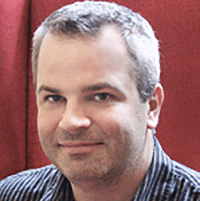
Richard Conroy
NIH / OSC

Richard Conroy
NIH / OSC
Richard Conroy, Ph.D., M.B.A., joined the NIH Office of Strategic Coordination in 2017 and leads a number of trans-NIH Common Fund programs, including HuBMAP and SMaHT, as well as participating in a number of initiatives including Post-Acute Sequelae of COVID (PASC) and RADx-Tech. Prior to joining the Office, Richard was the Director of the Division of Applied Science and Technology at the National Institute of Biomedical Imaging and Bioengineering (NIBIB), where we oversaw the institute’s portfolio of programs in biomedical imaging. Richard received his Ph.D. from the University of St. Andrews and MBA from the University of Maryland Global Campus.
- Email:richard.conroy@nih.gov

Tilda Cvrkel
UCLA

Tilda Cvrkel
UCLA
Dr. Tilda Cvrkel is an ethicist and academic philosopher, specializing in bioethics. Her particular areas of expertise include the ethics of emerging technologies (such as the ethical challenges around mHealth, eHealth, and Big Data), and the ethics of working with vulnerable and/or stigmatized populations in science, technology, and medicine. As an expansion of this work, Dr. Cvrkel is also earning her second Ph.D. in Clinical Psychology. In addition to being an award-winning teacher, she serves as a consultant to scientists, engineers, and clinicians working with bioethical questions.
- Email:cvrkel@ucla.edu

David Elashoff
UCLA

David Elashoff
UCLA
Dr. David Elashoff is a Professor of Medicine, Biostatistics and Computational Medicine at UCLA and Director of the Department of Medicine Statistics Core. He serves as Leader for the Biostatistics, Epidemiology and Research Design Program (BERD) for the UCLA CTSI. His main areas of statistical research are in developing statistical methods for the analysis of high throughput genomic and proteomic data. He has extensive collaborative experience on a variety of basic science, clinical research, and clinical trials projects, including those with members of the School of Dentistry, Department of Medicine, Jonsson Comprehensive Cancer Center (JCCC), School of Nursing, and investigators at the CTSI partner institutions. As an investigator on the BERD, he collaborates with program leaders to implement the CTSI-wide network of biostatistics consulting services and develop joint research in genomics, proteomics, bioinformatics, and clinical correlates. Dr. Elashoff has extensive experience collaborating on the design and analysis of biomarker discovery and validation studies. He also has experience with working with high dimensional data (omices, EHR, mHealth).
- Email:dae@ucla.edu

Craig Fox
UCLA

Craig Fox
UCLA
Professor of Psychology and Medicine
Craig Fox is Harold Williams Professor of Management and Professor of Psychology and Medicine at UCLA. He is also chair and co-founder of the Behavioral Decision Making Area at the UCLA Anderson School. Dr. Fox’s research investigates behavior under risk, uncertainty, and ambiguity, using a combination of methods that include surveys, laboratory and field experiments, analysis of archival data, and brain imaging. He also applies insights from behavioral economics and social psychology to improve health and financial decisions. Professor Fox has taught courses at the MBA, Executive, and Ph.D. levels on decision making, strategy, negotiation, and dynamic management. He has been at UCLA since 2003, and has also taught courses at Stanford, Northwestern, Duke, and Columbia universities. Professor Fox is founding co-editor of the journal Behavioral Science & Policy and co-President of the Behavioral Science & Policy Association. He is also former President of the Society for Judgment and Decision Making. He is a Fellow of the American Psychological Society
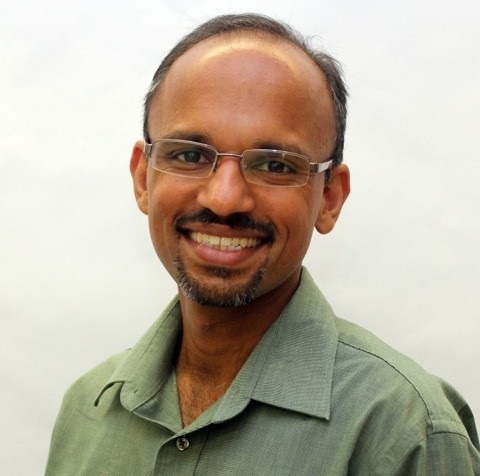
Deepak Ganesan
UMASS Amherst

Deepak Ganesan
UMASS Amherst
Research Professor, Institute for Social Research (ISR)
Dr. Ganesan is a Professor in the Department of Computer Science at the University of Massachusetts Amherst. Dr. Ganesan has worked for over a decade at the intersection of wireless sensing for health, wireless and mobile sensing, and low-power embedded systems, and designs novel systems based on strong theoretical foundations and grounded in real-world deployment and experimentation. He leads the Center for Mobile Health Sensing at UMass, and is on the advisory board of the Center for Personal Health Monitoring.
- Email:fresco@umich.edu
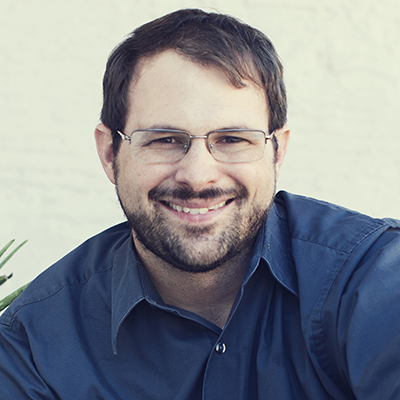
Eric Hekler
UCSD

Eric Hekler
UCSD
Director, Center for Wireless & Population Health Systems, Faculty, Design Lab & Qualcomm Insitute
Dr. Eric Hekler, is a Professor in the Department of Family Medicine & Public Health in the University of California, San Diego (UCSD), the Director of the Center for Wireless & Population Health Systems within the Qualcomm Institute at UCSD, and the faculty member of the Design Lab at UCSD. His research is broadly focused on advancing methods in the design, creation, optimization, evaluation, and reuse (scaling up and out) of digital health technologies. His goal is to contribute towards a form of applied science that facilitates equitable participation, contribution, and benefit for all. There are three interdependent themes to his research, advancing: 1) methods for optimizing adaptive behavioral interventions; 2) methods and processes to help people and communities help themselves: and 3) research pipelines to achieve efficient, rigorous, context-relevant solutions for complex problems, a domain he and his colleagues have called agile science. He has over 100 publications that span the many disciplines he contributes and has an active federal and foundation funding. He is recognized internationally as an expert in the area of digital health.
- Email:ehekler@eng.ucsd.edu
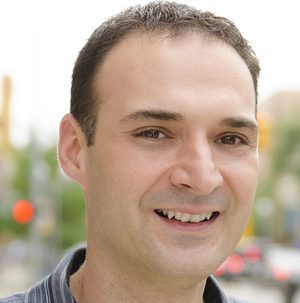
Predrag Klasnja
University of Michigan

Predrag Klasnja
University of Michigan
Associate Professor of Health Behavior & Health Education, School of Public Health
Predrag (Pedja) Klasnja is an associate professor at the School of Information and holds a joint appointment with the Department of Health Behavior and Health Education in the School of Public Health at the University of Michigan. He is a member of the Michigan Interactive & Social Computing group, an interdisciplinary group of researchers interested in human-computer interaction and social computing. Dr. Klasnja received a PhD in information science from the Information School at the University of Washington. He then served as a National Library of Medicine Postdoctoral Fellow in the Division of Biomedical and Health Informatics at the University of Washington. Dr. Klasnja joined the SI faculty in July 2012, and his areas of interest include human-computer interaction, health informatics, and mobile computing.
- Email:klasnja@umich.edu

Benjamin Marlin
UMASS Amherst

Benjamin Marlin
UMASS Amherst
Benjamin M. Marlin joined the College of Information and Computer Sciences at the University of Massachusetts Amherst in 2011. His current research centers on the development of customized probabilistic models and algorithms for time series with applications to the analysis of electronic health records and mobile health data. His recent work includes probabilistic models for analyzing wireless ECG data, detection of cocaine use from wireless ECG, hierarchical activity recognition from on-body sensor data with applications to smoking and eating detection, and methods for mitigating lab-to-field generalization loss in mobile health studies. Marlin is a 2014 NSF CAREER award recipient. His research has also been supported by the National Institutes of Health, the Patient-Centered Outcomes Research Institute, and the US Army Research Laboratory. Prior to joining UMass Amherst, Marlin was a fellow of the Pacific Institute for the Mathematical Sciences and the Killam Trusts at the University of British Columbia. He completed his PhD in machine learning in the Department of Computer Science at the University of Toronto.

Vickie Mays
UCLA

Vickie Mays
UCLA
Vickie Mays is a Professor in the Department of Psychology and Director of the UCLA Center on Research, Education, Training and Strategic Communication on Minority Health Disparities (www.MinorityHealthDisparities.org). Professor Mays' research primarily focuses on the mental and physical health disparities affecting racial and ethnic minority populations. She has a long history of research and policy development in the area of contextual factors that surrounding HIV/AIDS in racial and ethnic minorities. Her mental health research examines availability, access and quality of mental health services for racial, ethnic and sexual minorities. She is the Co-PI of the California Quality of Life Survey, a population based study of over 2,200 Californians on the prevalence of mental health disorders and the contextual factors associated with those disorders. She has received a number of awards including one for her lifetime research on women and HIV from AMFAR, a Women and Leadership Award from the American Psychological Association and several Distinguished Contributions for Research awards.
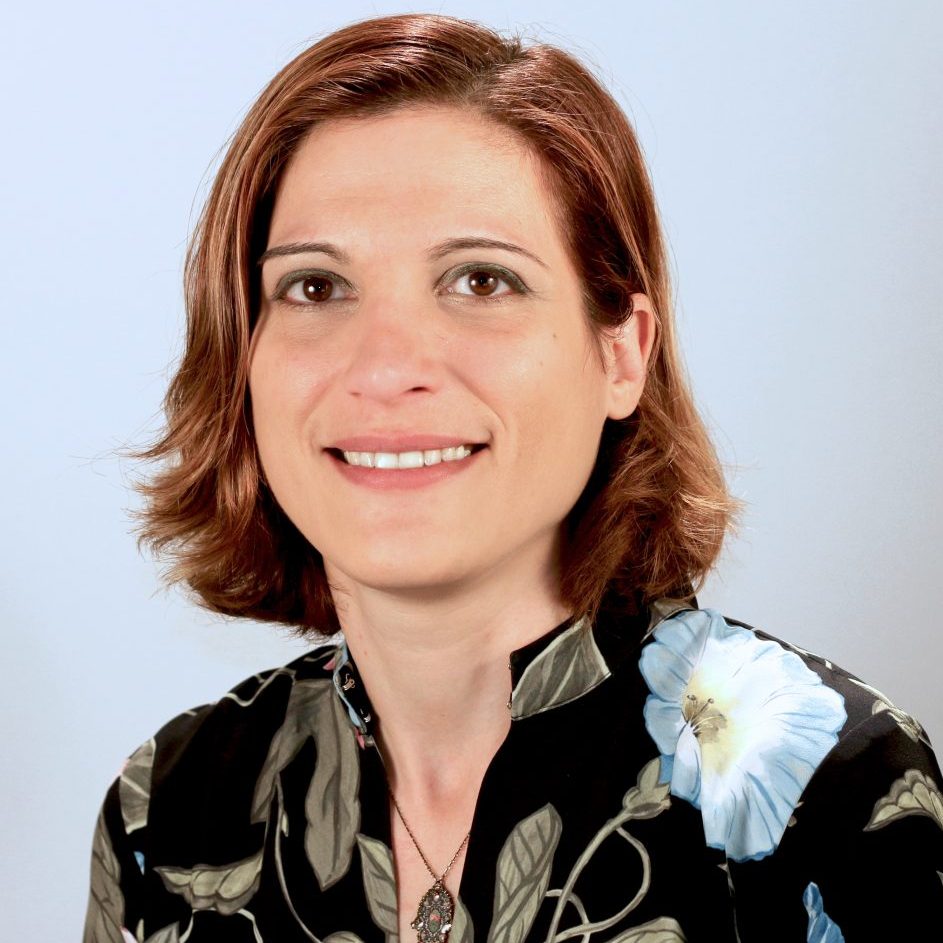
Inbal Nahum-Shani
University of Michigan

Inbal Nahum-Shani
University of Michigan
Inbal (Billie) Nahum-Shani is an Associate Professor at the Institute for Social Research and a co-director of the d3lab (Data Science for Dynamic intervention Decision-making lab) at the University of Michigan. Her research focuses on conceptual and methodological issues relating to building effective Adaptive Interventions—a treatment design in which ongoing information from the person is used to individualize the type/dose/modality of support (or treatment); and just-in-time adaptive interventions (JITAIs) —a special form of adaptive interventions in which mobile devices are used to provide support in a timely and ecological manner. Of particular interest are JITAIs aiming to engage participants in treatment. Much of her research focuses on developing methodologies relating to factorial designs, sequential multiple assignment randomized trials (SMARTs) and micro-randomized trials (MRTs).
- Email:inbal@umich.edu

Mark Newman
University of Michigan

Mark Newman
University of Michigan
Professor of Electrical Engineering & Computer Science
Dr. Mark W. Newman is a professor in the School of Information at the University of Michigan and also has an appointment in the Electrical Engineering and Computer Science Department. He conducts research in human-computer interaction, ubiquitous computing, and health informatics as well as teaching courses on user experience research and design, programming, and application development. Dr. Newman has contributed to a number of curriculum design efforts, particularly relating to programming and user experience research & design. His research seeks to develop principles, methods, and tools to guide the design of ubiquitous computing applications (i.e., applications and systems that incorporate mobile, IoT, and “smart” technology at their core). From early work in end-user configuration of complex environments to more recent work in smart home interaction and personal informatics for health, he has contributed over fifty peer-reviewed articles to the scientific literature in Human-Computer Interaction, Ubiquitous Computing, and Health Informatics. Dr. Newman’s work draws upon a variety of methods, most prominently featuring qualitative research for gaining a deep understanding of users in particular domains, design, prototyping, and software development for embodying novel design approaches, and small-to-medium-scale field deployments to evaluate novel designs in use. He also employs experimental methods, research through design, online ethnography, crowd-based approaches, and machine learning needed.
- Email:mwnewman@umich.edu

Dana Wolff-Hughes
NIH / NCI

Dana Wolff-Hughes
NIH / NCI
Dr. Wolff-Hughes, Ph.D., is a Health Scientist Administrator for the National Cancer Institute (NCI) and recently transitioned over from the Office of Behavioral and Social Sciences Research (OBSSR). In that role, her primary responsibility was to provide technical guidance and direction to research efforts related to the development and evaluation of behavioral and social outcomes using mobile and wireless health technology. Prior to joining OBSSR, Dr. Wolff-Hughes was a Cancer Research Training Award Fellow in the Science of Research Technology Branch at the National Cancer Institute. Dr. Wolff-Hughes earned her Ph.D. in Physical Activity Epidemiology and M.S. in Exercise Physiology from the University of Tennessee. She has expertise in mobile and wireless health technology, epidemiology, exercise physiology, survey methodology, and statistics. Dana’s research focuses on improving methods for assessment and profiling of behavior from sensors and temporally linked contextual data, with an emphasis on the implications for chronic disease prevention and treatment. She is particularly interested in how the accuracy of physical activity measures influences the dose-response relationships with chronic disease with a focus on methods to better interpret and understand data from activity monitors and wearable sensors.
- Email:dana.wolff@nih.gov
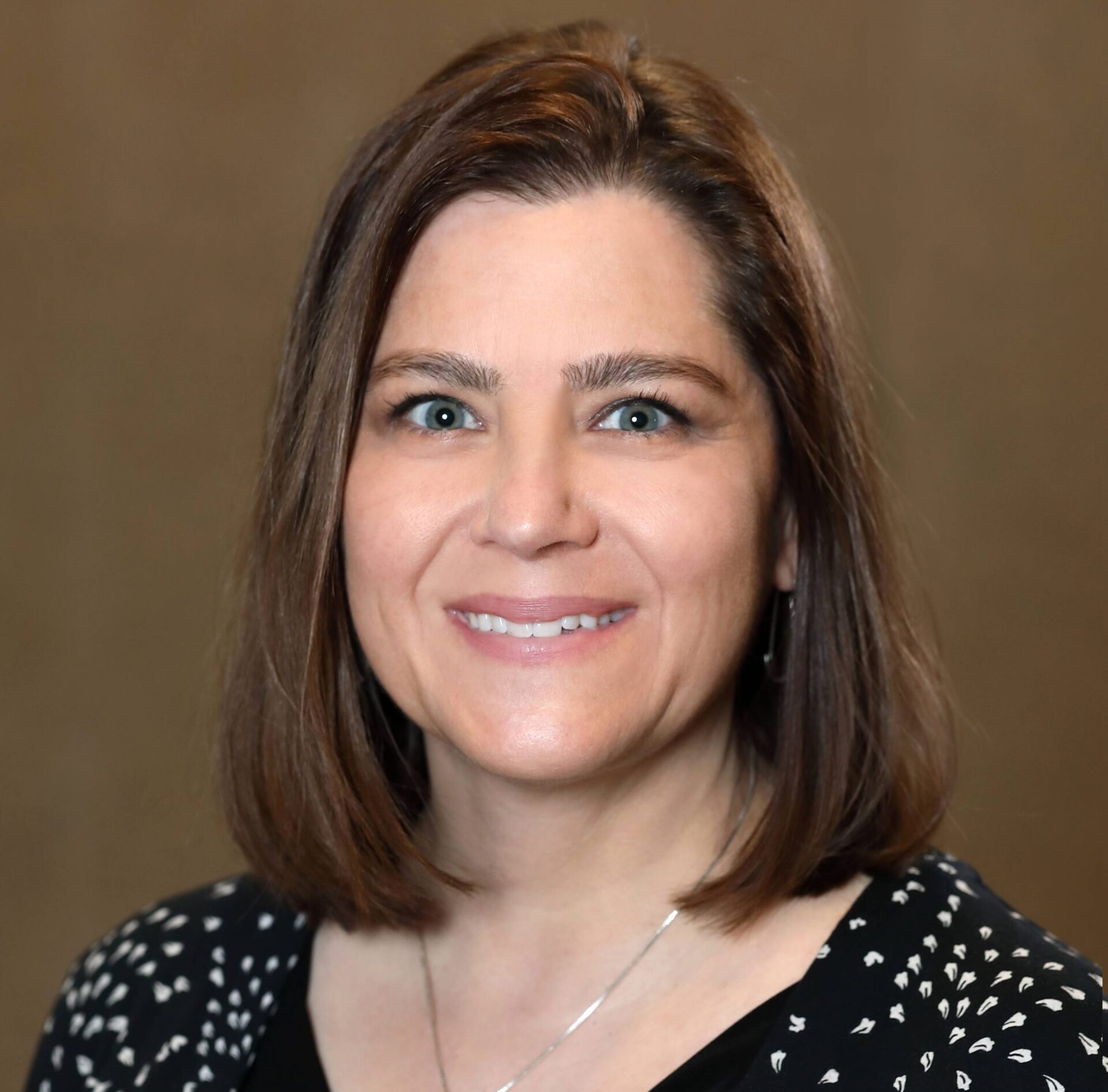
Kay Wanke
NIH / ODP & TRSP

Kay Wanke
NIH / ODP & TRSP
Kay Wanke Ph.D., M.P.H. is the Deputy Director of the Tobacco Regulatory Science Program (TRSP) in the NIH Office of Disease Prevention. She co-founded TRSP which coordinates the trans-NIH collaborative effort with the FDA’s Center for Tobacco Products (CTP) to foster tobacco regulatory research, including co-leading the development of TRSP’s signature program for Tobacco Centers of Regulatory Science and spearheading the establishment of the collection of Tobacco Regulatory Research consensus measures available to researchers in the PhenX Toolkit. Dr. Wanke came to the NIH in 2001 as a Cancer Prevention Fellow at the National Cancer Institute, where she examined the behavioral genetics of smoking cessation. She then served as a program official at the National Institute on Drug Abuse (NIDA) in the Epidemiology Research Branch where she oversaw a research portfolio including tobacco and substance use, dependence, and genetic epidemiology. At NIDA she was the Project Coordinator for the Network on Exposures to Psychosocial Stress and Addictive Substances, a component of the Genes, Environment, and Health Initiative Exposure Biology Program, which funded the development of new technologies for accurate measurement of environmental exposures and lifestyle factors. Dr. Wanke also served as a health scientist administrator at the NIH Office of Behavioral and Social Sciences Research (OBSSR) where she coordinated and promoted behavioral genetic research, training, programs, and communication across the NIH Institutes. Dr. Wanke received her Ph.D. in clinical psychology from Southern Illinois University at Carbondale, including a pre-doctoral internship at the University of Alabama at Birmingham School of Medicine. She received her M.P.H. at the Harvard School of Public Health.
- Email:kay.wanke@nih.gov
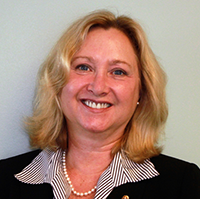
Bonnie Zima
UCLA

Bonnie Zima
UCLA
Professor-in-Residence, UCLA Department of Psychiatry & Behavioral Sciences
Bonnie T. Zima, MD, MPH is Professor-in-Residence in the UCLA Department of Psychiatry and Behavioral Sciences, and Associate Director of the UCLA Center for Health Services and Society. Dr. Zima’s research is dedicated to improving the quality of child mental health care, with priority placed on children enrolled in Medicaid-funded outpatient programs and underserved, at risk child populations. Her research spans national pediatric hospitalization resource utilization and costs, validity of national quality measures, pediatric integrated care models, pediatric workforce development, and use of telehealth and mobile health technologies. She is Principal Investigator (PI) of a five-year study to pilot test integrated care models for children in two federally qualified health care centers in Chicago, an ongoing study that developed and pilot-tested MH2™, Mobile Health for Mental Health, a web-based application to optimize stimulant medication treatment for children with ADHD. Dr. Zima is also Co-Investigator on a three-year PCORI-funded randomized trial of a telehealth intervention to improve access to community-based child mental health programs from pediatric primary care clinics, a 5-year SAMHSA-funded intervention to improve pediatric work force training related to child complex trauma, lead child psychiatrist on the California Performance Outcomes Measures Study, and core PI for a recently funded five-year study examining the impact of child crisis intervention programs in 16 California counties. Her research has received all three national research awards from the American Academy of Child and Adolescent Psychiatry (AACAP).
- Email:bzima@mednet.ucla.edu
NIH Panel

Will Aklin
NIH / NIDA

Will Aklin
NIH / NIDA
Dr. Will Aklin is Chief of the Clinical Research Grants Branch (CRGB) within the Division of Therapeutics and Medical Consequences (DTMC) at the National Institute on Drug Abuse (NIDA). CRGB supports research grants to test medications, behavioral therapies (including digital therapeutics), and device-based treatments for substance use disorders in several key areas: controlled compound assessment clinical pharmacology studies, controlled clinical trials for new treatment agents or new indications for marketed medications/devices and clinical studies of the pharmacological effects; and interactions among experimental addiction medications and medications for associated medical conditions and psychotherapeutic agents. The Branch also supports experimental pharmacotherapy studies to enhance the efficacy of approved marketed medications, and experimental pharmacotherapy studies of psychotropic or other medications used in the treatment of mental disorders in drug dependent individuals including drug-induced or drug-related mental disorders. Dr. Aklin received his Ph.D. in Clinical Psychology from the University of Maryland and performed his Clinical Psychology internship at Yale University School of Medicine and a Post-Doctoral fellowship at Johns Hopkins School of Medicine Behavioral Pharmacology Research Unit. Will has directed the Behavioral Therapy Development Program (BTDP) within DTMC since 2015. In this capacity he developed a robust behavioral therapy research program and portfolio focused on integrative interventions that involve the development of behavioral therapies to improve the effect of a pharmacological treatment or therapeutic devices and established strategic plans and research directions for behavioral treatments and digital therapeutics. Will’s program focuses on studies that seek to determine mechanisms of behavior change, within the context of behavioral treatment research (this may include behavioral, cognitive, social, affective, and/or neurobiological targets), as well as the use of neuroimaging tools to investigate the effects of behavioral interventions on the brain. Will is keenly interested in data replicability in treatment studies, behavioral science to inform treatment development, adherence to medications, and the elucidation of the mechanisms of action of successful behavioral and integrative treatments. He is the recipient of the College on Problem of Drug Dependence (CPDD)’s J. Michael Morrison Award and several NIDA and NIH Director’s awards. He has been tapped by NIH and NIDA leadership to coordinate several NIH flagship initiatives, including partnering with NIAAA and NCI on the development and testing of behavioral therapies for drug and alcohol use disorders; Common Fund initiatives, including Science of Behavior Change; Helping to End Addiction Long-Term (HEAL) Initiative; partnerships with the Food and Drug Administration (FDA) on digital therapeutics and device-based treatments for substance use disorders; and co-lead of the NIDA Racial Equity Initiative (REI).
- Email:aklinwm@mail.nih.gov

Audie Atienza
NIH / NCATS

Audie Atienza
NIH / NCATS
Dr. Audie Atienza is a senior program officer at the National Center for Advancing Translational Science (NCATS), National Institutes of Health (NIH). Prior to joining NCATS, Dr. Atienza served as a senior program officer at the National Institute on Aging (NIA) and National Cancer Institute (NCI). He previously worked on special assignments to the NIH Office of the Director and to the HHS Immediate Office of the Secretary as a senior advisor. He has collaborated with the White House (OSTP, VPOTUS, FLOTUS), Office of the U.S. Surgeon General, Office of the National Coordinator for Health IT, and Office of the Chief Privacy Officer. Dr. Atienza has contributed to various NIH-wide research efforts including the NIH Roadmap Initiative; NIH Genes, Environment and Health Initiative (GEI); mHealth Summit; NIH Big Data to Knowledge (BD2K) Initiative; and the NIH REsearching COVID to Enhance Recovery (RECOVER) Initiative.
- Email:audie.atienza@nih.gov

Kristopher Bough
NIH / NINR SBIR & STTR

Kristopher Bough
NIH / NINR SBIR & STTR
Dr. Bough is the Director of NINR’s Small Business Innovation Research (SBIR) and Small Business Technology Transfer (STTR) program and oversees a diverse portfolio of healthcare technologies. Prior to joining NIH, Dr. Bough was a Program Director at the National Institute on Drug Abuse (NIDA) for 12 years where he oversaw SBIR/STTR and research project grants focused on the discovery of new therapeutics for addiction (2008-2020). Prior to joining NIDA, Dr. Bough worked as a clinical pharmacologist at the US Food & Drug Administration/Center for Drug Evaluation and Research (2005-2008). He is interested in the development of innovative digital health and AI-based technologies to improve healthcare. Dr. Bough holds a B.S. degree in Biology from Gettysburg College and M.S. and Ph.D. degrees in Biology (neuroscience) from Georgetown University.
- Email:kristopher.bough@nih.gov

Dave Clark
NIH / NHLBI

Dave Clark
NIH / NHLBI
Dr. Dave Clark is chief of the Implementation Science Branch Center for Translation Research & Implementation Science at the National Heart, Lung and Blood Institute. He maintains a portfolio of grants focusing on rigorous testing of complementary and integrative health approaches and dissemination and implementation strategies for efficacious interventions. This includes pain management, treatment of military and veteran populations, health services research, economics, Electronic Health Record meaningful use, and SBIRT (Screening, Brief Intervention, and Referral to Treatment).
Prior to joining NHLBI, Dr. Clark had an extensive work history in oral health research, with 8 years as a program officer at the National Institute of Dental and Craniofacial Research, and in the substance abuse field, including 4 years of research at the University of Kentucky Center on Drug and Alcohol Research and more than 13 years of direct patient care at the VA Medical Center San Diego. He received his Dr.P.H. in epidemiology from the University of Kentucky and his M.P.H. in health services administration from San Diego State University.
- Email:dave.clark@nih.gov

Richard Conroy
NIH / OSC

Richard Conroy
NIH / OSC
Richard Conroy, Ph.D., M.B.A., joined the NIH Office of Strategic Coordination in 2017 and leads a number of trans-NIH Common Fund programs, including HuBMAP and SMaHT, as well as participating in a number of initiatives including Post-Acute Sequelae of COVID (PASC) and RADx-Tech. Prior to joining the Office, Richard was the Director of the Division of Applied Science and Technology at the National Institute of Biomedical Imaging and Bioengineering (NIBIB), where we oversaw the institute’s portfolio of programs in biomedical imaging. Richard received his Ph.D. from the University of St. Andrews and MBA from the University of Maryland Global Campus.
- Email:richard.conroy@nih.gov

Kay Wanke
NIH / ODP & TRSP

Kay Wanke
NIH / ODP & TRSP
Kay Wanke Ph.D., M.P.H. is the Deputy Director of the Tobacco Regulatory Science Program (TRSP) in the NIH Office of Disease Prevention. She co-founded TRSP which coordinates the trans-NIH collaborative effort with the FDA’s Center for Tobacco Products (CTP) to foster tobacco regulatory research, including co-leading the development of TRSP’s signature program for Tobacco Centers of Regulatory Science and spearheading the establishment of the collection of Tobacco Regulatory Research consensus measures available to researchers in the PhenX Toolkit. Dr. Wanke came to the NIH in 2001 as a Cancer Prevention Fellow at the National Cancer Institute, where she examined the behavioral genetics of smoking cessation. She then served as a program official at the National Institute on Drug Abuse (NIDA) in the Epidemiology Research Branch where she oversaw a research portfolio including tobacco and substance use, dependence, and genetic epidemiology. At NIDA she was the Project Coordinator for the Network on Exposures to Psychosocial Stress and Addictive Substances, a component of the Genes, Environment, and Health Initiative Exposure Biology Program, which funded the development of new technologies for accurate measurement of environmental exposures and lifestyle factors. Dr. Wanke also served as a health scientist administrator at the NIH Office of Behavioral and Social Sciences Research (OBSSR) where she coordinated and promoted behavioral genetic research, training, programs, and communication across the NIH Institutes. Dr. Wanke received her Ph.D. in clinical psychology from Southern Illinois University at Carbondale, including a pre-doctoral internship at the University of Alabama at Birmingham School of Medicine. She received her M.P.H. at the Harvard School of Public Health.
- Email:kay.wanke@nih.gov

Dana Wolff-Hughes
NIH / NCI

Dana Wolff-Hughes
NIH / NCI
Dr. Wolff-Hughes, Ph.D., is a Health Scientist Administrator for the National Cancer Institute (NCI) and recently transitioned over from the Office of Behavioral and Social Sciences Research (OBSSR). In that role, her primary responsibility was to provide technical guidance and direction to research efforts related to the development and evaluation of behavioral and social outcomes using mobile and wireless health technology. Prior to joining OBSSR, Dr. Wolff-Hughes was a Cancer Research Training Award Fellow in the Science of Research Technology Branch at the National Cancer Institute. Dr. Wolff-Hughes earned her Ph.D. in Physical Activity Epidemiology and M.S. in Exercise Physiology from the University of Tennessee. She has expertise in mobile and wireless health technology, epidemiology, exercise physiology, survey methodology, and statistics. Dana’s research focuses on improving methods for assessment and profiling of behavior from sensors and temporally linked contextual data, with an emphasis on the implications for chronic disease prevention and treatment. She is particularly interested in how the accuracy of physical activity measures influences the dose-response relationships with chronic disease with a focus on methods to better interpret and understand data from activity monitors and wearable sensors.
- Email:dana.wolff@nih.gov
Domain Experts

Walter Dempsey
Adaptive Interventions

Walter Dempsey
Adaptive Interventions
Dr. Walter Dempsey is an Assistant Professor of Biostatistics and Assistant Research Professor at the Institute for Social Research. His research focuses on statistical methods for digital and mobile health. His current work involves three complementary research themes: (1) experimental design and data analytic methods to inform multi-stage decision making in health; (2) statistical modeling of complex longitudinal and survival data; and (3) statistical modeling of complex relational structures such as interaction networks. In the coming years, he will continue to design and apply novel statistical methodologies to make sense of complex longitudinal, survival, and relational datasets. This work will inform decision-making in health by aiding in intervention evaluation and development. Prior to joining, he was a postdoctoral fellow in the Department of Statistics at Harvard University where he worked within the Statistical Reinforcement Learning Lab under the supervision of Susan Murphy. He received his Ph.D. in Statistics at the University of Chicago under the supervision of Peter McCullagh.
- Email:wdem@umich.edu

David Elashoff
Experimental Design

David Elashoff
Experimental Design
Dr. David Elashoff is a Professor of Medicine, Biostatistics and Computational Medicine at UCLA and Director of the Department of Medicine Statistics Core. He serves as Leader for the Biostatistics, Epidemiology and Research Design Program (BERD) for the UCLA CTSI. His main areas of statistical research are in developing statistical methods for the analysis of high throughput genomic and proteomic data. He has extensive collaborative experience on a variety of basic science, clinical research, and clinical trials projects, including those with members of the School of Dentistry, Department of Medicine, Jonsson Comprehensive Cancer Center (JCCC), School of Nursing, and investigators at the CTSI partner institutions. As an investigator on the BERD, he collaborates with program leaders to implement the CTSI-wide network of biostatistics consulting services and develop joint research in genomics, proteomics, bioinformatics, and clinical correlates. Dr. Elashoff has extensive experience collaborating on the design and analysis of biomarker discovery and validation studies. He also has experience with working with high dimensional data (omices, EHR, mHealth).
- Email:dae@ucla.edu

Deepak Ganesan
Inertial Sensors & Sensors in mHealth

Deepak Ganesan
Inertial Sensors & Sensors in mHealth
Research Professor, Institute for Social Research (ISR)
Dr. Ganesan is a Professor in the Department of Computer Science at the University of Massachusetts Amherst. Dr. Ganesan has worked for over a decade at the intersection of wireless sensing for health, wireless and mobile sensing, and low-power embedded systems, and designs novel systems based on strong theoretical foundations and grounded in real-world deployment and experimentation. He leads the Center for Mobile Health Sensing at UMass, and is on the advisory board of the Center for Personal Health Monitoring.
- Email:fresco@umich.edu

Eric Hekler
Population Scale Studies

Eric Hekler
Population Scale Studies
Director, Center for Wireless & Population Health Systems, Faculty, Design Lab & Qualcomm Insitute
Dr. Eric Hekler, is a Professor in the Department of Family Medicine & Public Health in the University of California, San Diego (UCSD), the Director of the Center for Wireless & Population Health Systems within the Qualcomm Institute at UCSD, and the faculty member of the Design Lab at UCSD. His research is broadly focused on advancing methods in the design, creation, optimization, evaluation, and reuse (scaling up and out) of digital health technologies. His goal is to contribute towards a form of applied science that facilitates equitable participation, contribution, and benefit for all. There are three interdependent themes to his research, advancing: 1) methods for optimizing adaptive behavioral interventions; 2) methods and processes to help people and communities help themselves: and 3) research pipelines to achieve efficient, rigorous, context-relevant solutions for complex problems, a domain he and his colleagues have called agile science. He has over 100 publications that span the many disciplines he contributes and has an active federal and foundation funding. He is recognized internationally as an expert in the area of digital health.
- Email:ehekler@eng.ucsd.edu

Predrag Klasnja
eTrial Platforms

Predrag Klasnja
eTrial Platforms
Associate Professor of Health Behavior & Health Education, School of Public Health
Predrag (Pedja) Klasnja is an associate professor at the School of Information and holds a joint appointment with the Department of Health Behavior and Health Education in the School of Public Health at the University of Michigan. He is a member of the Michigan Interactive & Social Computing group, an interdisciplinary group of researchers interested in human-computer interaction and social computing. Dr. Klasnja received a PhD in information science from the Information School at the University of Washington. He then served as a National Library of Medicine Postdoctoral Fellow in the Division of Biomedical and Health Informatics at the University of Washington. Dr. Klasnja joined the SI faculty in July 2012, and his areas of interest include human-computer interaction, health informatics, and mobile computing.
- Email:klasnja@umich.edu

Scott Kamholz
Patents & Technology Transfer

Scott Kamholz
Patents & Technology Transfer
Former Patent Judge, USPTO
Scott Kamholz is the Head of Intellectual Property at Tessera Therapeutics and leads a legal team that works closely with Tessera’s scientists and other professionals to evaluate and secure all aspects of the company’s patents, trademarks, and other intellectual property.
Scott's primary experience is in patent and trademark law. He developed expertise in patent prosecution, strategy, and global portfolio management as a patent attorney at Foley Hoag LLP in Boston, and became a sought-after trial lawyer specializing in proceedings before the Patent Trial and Appeal Board (PTAB) at Covington & Burling LLP in Washington, DC. Scott also served for several years as an Administrative Patent Judge on the PTAB, where he heard and decided hundreds of patent disputes, including the first pharmaceutical and biotechnology cases reviewed under the Leahy-Smith America Invents Act of 2011. He is a frequent commentator and thought leader on administrative patent law.
Scott holds a Ph.D. in stem cell biology, an M.D. degree, and a B.S. in biomedical engineering magna cum laude, all from the University of Miami, and a J.D. from Boston College Law School
- Email:scott@kamholz.com

David Kotz
Sensors/Sensing

David Kotz
Sensors/Sensing
David Kotz is the Pat and John Rosenwald Professor in the Department of Computer Science at Dartmouth College. He previously served as Interim Provost, as Associate Dean of the Faculty for the Sciences, as the Executive Director of the Institute for Security Technology Studies, and as Core Director in the Center for Technology and Behavioral Health. His research interests include security and privacy in smart homes, pervasive computing for healthcare, and wireless networks. He has published over 230 refereed papers, obtained $82m in grant funding, and mentored nearly 100 research students. He is an ACM Fellow, an IEEE Fellow, a 2008 Fulbright Fellow to India, a 2019 Visiting Professor at ETH Zürich, and an elected member of Phi Beta Kappa. He received his AB in Computer Science and Physics from Dartmouth in 1986, and his PhD in Computer Science from Duke University in 1991.
- Email:kotz@dartmouth.edu

Benjamin Marlin
Machine Learning

Benjamin Marlin
Machine Learning
Benjamin M. Marlin joined the College of Information and Computer Sciences at the University of Massachusetts Amherst in 2011. His current research centers on the development of customized probabilistic models and algorithms for time series with applications to the analysis of electronic health records and mobile health data. His recent work includes probabilistic models for analyzing wireless ECG data, detection of cocaine use from wireless ECG, hierarchical activity recognition from on-body sensor data with applications to smoking and eating detection, and methods for mitigating lab-to-field generalization loss in mobile health studies. Marlin is a 2014 NSF CAREER award recipient. His research has also been supported by the National Institutes of Health, the Patient-Centered Outcomes Research Institute, and the US Army Research Laboratory. Prior to joining UMass Amherst, Marlin was a fellow of the Pacific Institute for the Mathematical Sciences and the Killam Trusts at the University of British Columbia. He completed his PhD in machine learning in the Department of Computer Science at the University of Toronto.
- Email:samurphy@fas.harvard.edu

Camille Nebeker
Bioethics

Camille Nebeker
Bioethics
Camille Nebeker, EdD, MS, is an Associate Professor with appointments with the UC San Diego Design Lab and the Wertheim School of Public Health. She co-founded and directs the ReCODE Health center, which provides education and consultation services to guide ethical practices in technology-supported health research. Dr. Nebeker applies a human centered design approach to shape ethical research practices (e.g., risk assessment, informed consent, return of results), which has led to development of decision support tools (see: Digital Health Checklist and Framework and Connected and Open Research Ethics platform). She serves as a member of the World Health Organization Digital Health Roster of Experts, American Association for the Advancement of Science Committee on Scientific Freedom and Responsibility, IEEE Organizational Governance of AI Working Group and the Society of Behavioral Medicine Digital Health Council. Dr. Nebeker’s research has received support from federal, foundation and industry sources including the NSF, NIH, Office of Research Integrity, RWJF and IBM. Publications related to her work are accessible via: https://escholarship.org/uc/recodehealth_publications.
- Email:nebeker@ucsd.edu

Mark Newman
U/X Design

Mark Newman
U/X Design
Professor of Electrical Engineering & Computer Science
Dr. Mark W. Newman is a professor in the School of Information at the University of Michigan and also has an appointment in the Electrical Engineering and Computer Science Department. He conducts research in human-computer interaction, ubiquitous computing, and health informatics as well as teaching courses on user experience research and design, programming, and application development. Dr. Newman has contributed to a number of curriculum design efforts, particularly relating to programming and user experience research & design. His research seeks to develop principles, methods, and tools to guide the design of ubiquitous computing applications (i.e., applications and systems that incorporate mobile, IoT, and “smart” technology at their core). From early work in end-user configuration of complex environments to more recent work in smart home interaction and personal informatics for health, he has contributed over fifty peer-reviewed articles to the scientific literature in Human-Computer Interaction, Ubiquitous Computing, and Health Informatics. Dr. Newman’s work draws upon a variety of methods, most prominently featuring qualitative research for gaining a deep understanding of users in particular domains, design, prototyping, and software development for embodying novel design approaches, and small-to-medium-scale field deployments to evaluate novel designs in use. He also employs experimental methods, research through design, online ethnography, crowd-based approaches, and machine learning needed.
- Email:mwnewman@umich.edu
Program Evaluator

Minjeong Jeon
UCLA

Minjeong Jeon
UCLA
Dr. Jeon is an Associate Professor of Advanced Quantitative Methods at the UCLA Department of Education. Her research revolves around developing, applying, and estimating latent variable models for studying measurement, response processes, and individual differences. Dr. Jeon also has a keen interest in developing computational methods and software programs. Recent research topics include team science network analysis and joint analysis of behavioral and biological process data.
- Email:mjjeon@ucla.edu


